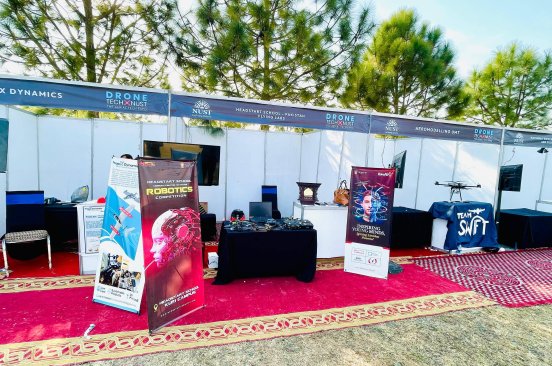
Exploring the Use of Digital Tools for Multi-criteria Assessment of Health Facilities
Nepal Flying Labs developed a GIS-based decision support tool to assist in the design of medical cargo drone intervention programs.
October 31st, 2024
Nepal Flying Labs organized a workshop titled "Drones for Medical Cargo Delivery: Lessons Learned, Challenges, and Digital Tools for Planning" on August 5th, 2024, at Doleshwor Village Resort, Bhaktapur. The workshop aimed to introduce the web-based iMAP Health Tool, designed to analyze potential medical drone hub locations and to raise awareness among participants about the importance of data-driven decision-making in designing medical cargo drone interventions. The workshop was organized as a part of the project “Design and Development of a Multicriteria Tool,” supported by DT Global under the Frontier Tech Hub program by the Foreign, Commonwealth & Development Office (FCDO), UK.
During the tool development phase, a health assessment survey was conducted in five municipalities of Kavrepalanchok district. A key objective of the workshop was also to share the findings of that survey and gather feedback and comments from the participants regarding the survey findings.

The event brought together key stakeholders, including Hon. Minister of Health, Bagmati Province, Mr. Kiran Thapa, Mayor of Panauti Municipality, Mr. Ram Sharan Bhandari, Spokesperson of the Ministry of Health, Dr. Prakash Budhathoki, Office Chief of DPHO Kavrepalanchowk, Mrs. Ragishree Katchpati Shrestha, Spokesperson of the Ministry of Health, Bagmati Province, Mr. Narendra Kumar Jha, healthcare professionals from all five municipalities, representatives from Dhulikhel Hospital, and representatives from the World Health Organization (WHO).
The workshop commenced with a formal session, where the Chief Guest, Honorable Minister of Health, Bagmati Province, Mr. Kiran Thapa, delivered the opening remarks, emphasizing the importance of drones in improving access to healthcare in Nepal.
During the second session, the event featured a series of insightful presentations. These began with local and international experiences with drones in healthcare, followed by an introduction to the features and a live demonstration of the Multi-Criteria Decision Analysis (MCDA) tool. The session also presented the findings from a health facilities assessment survey conducted in five municipalities of the Kavrepalanchok district.
One of the notable presentations was delivered by Mr. Raj Bikram Maharjan, CEO of Airlift Technology Pvt. Ltd. He focused on practical lessons learned and challenges faced during the implementation of drone-based cargo delivery initiatives in Nepal. Drawing from his experience with pilot projects such as the use of drones to collect waste from the mountain and transport oxygen cylinders up to the base camp, Mr. Maharjan highlighted critical parameters that must be considered when designing medical cargo drone interventions in remote locations of Nepal.

In the third session, participants engaged in a group discussion, where they explored the challenges and opportunities of drone-based healthcare delivery in Nepal, particularly in the five municipalities of Kavrepalanchok district.
The participants were provided with the following key questions to facilitate the group discussion session:
- What health-related issues might be resolved, in your municipality, by using medical drones?
- If a drone hub is established at Dhulikhel Hospital, which health posts with challenging terrains in your municipality could benefit from the medical drone project?
- What challenges and problems might arise in implementing a medical drone project in your municipality?
- What types of data and information are important to include in the iMAP Health Tool for planning for medical drone interventions e.g. determining health facilities with poor infrastructures, access routes to individual health facilities etc?
- How else might a GIS-based decision system, like the iMAP Health Tool, support your daily planning and decision-making processes?
The findings from the group discussion and the workshop at large demonstrated the transformative potential of drones in improving healthcare access in Nepal’s remote and underserved regions. It also underscored the critical importance of tools like iMAP Health, not only in the planning and execution of medical cargo drone operations but also in assessing health facilities from a multi-criteria perspective. By leveraging this digital tool, stakeholders can ensure more informed, data-driven decisions, addressing both logistical and healthcare challenges in hard-to-reach areas.
Next Steps:
- Refinement of the iMAP Health Tool: Incorporating feedback from workshop participants to further enhance the platform’s capabilities, including more detailed geographical and health data for optimized drone deployment and facility assessments.
- Collaboration with the Ministry of Health: Initiating discussions with the Ministry of Health to draft a comprehensive plan for medical cargo drone interventions across Nepal.
- Identification of target areas: Working with the Ministry of Health to identify a preliminary list of palikas in Nepal that should be prioritized for medical cargo drone operations based on healthcare needs and logistical challenges.
- Healthcare facility assessments: Expanding the use of the iMAP Health Tool to assess health facilities in additional locations beyond Dhulikhel, enabling a broader understanding of healthcare accessibility and infrastructure across the country.
- Policy and regulatory engagement: Engaging with the Ministry of Health and Population, along with other regulatory bodies, to develop a robust policy framework that supports the sustainable integration of drone-based healthcare delivery in Nepal.
- Monitoring and expansion: Implementing a monitoring system to track the effectiveness and impact of drone interventions, with a long-term vision of scaling the solution to additional districts and health facilities across Nepal.
iMAP Health is a groundbreaking innovation in the medical cargo drone space, being one of the first tools specifically designed for planning and optimizing medical drone interventions. Nepal Flying Labs extends an open invitation to individuals, researchers, and organizations involved in various phases of medical cargo drone projects to sign up, test our tool, and provide valuable feedback. We are committed to continuously developing and enhancing iMAP Health to ensure it meets the evolving needs of medical cargo drone initiatives.
Category(s)
Location(s)
Recent Articles
View All »

Team Cameroon's Road to Victory at the First Global Robotics Competition 2025
